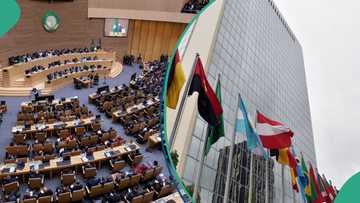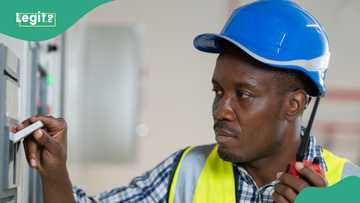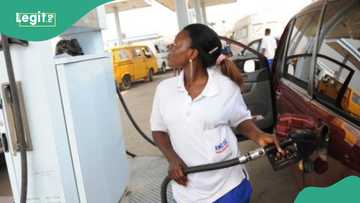Good News for Nigerians as World Bank Set to Crash Solar Tariff
- The World Bank will put in place a solar auction system that will reduce Nigeria's solar tariff costs
- The importance in advancing Nigeria's energy transition strategy was deliberated by energies marketers association
- Permanent Secretary, Lagos State Ministry of Energy and Mineral Resources, claims that the energy needs of Nigerians are not being satisfied
Legit.ng journalist Zainab Iwayemi has over 3-year-experience covering the Economy, Technology, and Capital Market.
The World Bank will soon be implementing a solar auction structure which will lower the cost of solar tariff in Nigeria, the Nigerian Electricity Regulatory Commission (NERC).

Source: Getty Images
This was said by Engineer Jonathan, head of NERC's Renewable Energy/Corporate Planning and Strategy, at a webinar competency center renewable series of the Major Energies Marketers Association of Nigeria (MEMAN).
He said:
PAY ATTENTION: Сheck out news that is picked exactly for YOU ➡️ find the “Recommended for you” block on the home page and enjoy!
“We are having some challenges which have to do with integrating the solar energy into the national grid. Those challenges, many commissions, have come to the aid of the commission.
“World Bank presently is bringing out a solar auction framework. That solar auction framework, once it commences, it will allow the developers and the cost of solar tariff will go down.
“That is the essence of the solar auction. It will open the space for all the contractors in Nigeria to be in it. In financing and investment, the World has outlined how they will support in the distribution and transmission segment, not in the generation.”
Energy needs not met
In a press release, Head Supply, HSEQ, and Technical at MEMAN discussed the workshop's significance in furthering Nigeria's energy transition strategy. The topic of the workshop was "Solar energy-driven energy transition."
According to Engineer Abiola Kosegbe, Permanent Secretary, Lagos State Ministry of Energy and Mineral Resources, Nigerians' energy needs, and those of Lagos State in particular, are not being met.
She said that the Lagos State has set an ambitious aim to produce 50% of its electricity from renewable sources by 2030, and the success of programs like the "Solar for All" program will be critical in realizing this objective.
In a New Telegraph report, she also stressed the need for continued investment in infrastructure, supportive policies, and collaboration to sustain the growth of renewable energy in Lagos and across Nigeria.
Kosegbe said:
“We stand on a new era of advancement in renewable technologies. We need to fill the gaps that we are faced with as we are in Nigeria today. Solar, wind, hydro, bioenergy are not just alternative sources.
“They are becoming the backbone of a sustainable energy future. Innovations in this fields are driving efficiency, reducing costs and unlocking new possibilities.
Expert advises on solar experience
Legit.ng reported that between 2022 and 2024, the price of fuel in Nigeria jumped over 400%. That pushed small business owners and homes to look for alternative power sources.
The year 2023 especially saw many Nigerians reconfiguring their petrol-powered generators into ones using gas.
This shows that many people are seeking cheap electricity rather than fuel.
PAY ATTENTION: Stay Informed and follow us on Google News!
Source: Legit.ng




